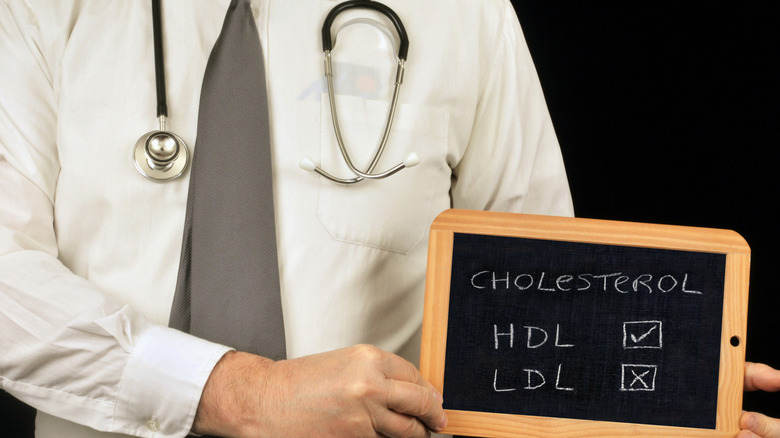
Even with a generally healthy lifestyle, you might still encounter elevated cholesterol levels. Various common conditions and subtle causes can lead to high cholesterol, including fluctuations in testosterone levels.
However, the link between testosterone and high cholesterol is not well-defined. A decrease in testosterone (which may be indicated by signs of low testosterone) does not automatically result in a sharp increase in cholesterol. Moreover, even if cholesterol levels rise, you might still gain some health benefits. According to a 2022 study in the International Journal of Endocrinology, male rats were fully castrated, partially castrated, or left intact. After six weeks, the first two groups had higher cholesterol levels than the third. However, all types of cholesterol, including high-density lipoprotein (HDL) cholesterol, increased in the rats.
Unlike low-density lipoprotein (LDL) cholesterol (“bad” cholesterol), HDL (“good”) cholesterol does not contribute to harmful plaque buildup in blood vessels. In fact, HDL cholesterol aids in transporting excess cholesterol to the liver for efficient processing. Therefore, although low testosterone led to increased LDL cholesterol in the study rats, it also resulted in higher protective HDL cholesterol.
The relationship between testosterone and cholesterol: Conflicting findings

A 2007 study in the Asian Journal of Andrology arrived at a different conclusion regarding the testosterone-cholesterol relationship. Researchers examined male subjects with and without heart disease to determine if there was a correlation between total testosterone and cholesterol levels. In both groups, higher total testosterone appeared to predict higher HDL cholesterol. For every five nanomoles per liter (nmol/L) increase in testosterone, a man could expect a 2% to 6% rise in HDL cholesterol. These findings seem to contradict the 2022 study’s conclusions (i.e., that low testosterone led to high HDL cholesterol) or suggest that protective HDL cholesterol may increase regardless of whether testosterone levels fall or rise.
What about the potential link between testosterone and total cholesterol? A 2012 study published in Substance Abuse Treatment, Prevention, and Policy investigated the effects of administering a 500-milligram testosterone injection to adult men with normal testosterone levels. Within two days, their total cholesterol levels increased by an average of 15%, but returned to baseline after 15 days.
Is testosterone replacement therapy a solution for low testosterone?

Researchers have long attempted to determine the precise impact of testosterone on cholesterol. However, as studies have yielded varying results, even experts like Dr. Khurram Nasir from Houston Methodist are uncertain whether to recommend testosterone replacement therapy for men with low testosterone and cardiovascular issues like high cholesterol.
Dr. Nasir noted, “Based on what we know about the association between testosterone deficiency and metabolic issues, impaired glucose metabolism, poor cholesterol levels, and inflammation — all of which are linked to heart disease — we can infer that testosterone deficiency is also associated with poor heart health.” Nevertheless, Dr. Nasir advises against prescribing testosterone therapy for every man with low testosterone, as individual risk factors may render the treatment unsuitable.
Whether your testosterone levels are high, normal, or low, if you have cholesterol concerns, it’s advisable to consult a trusted doctor. High cholesterol increases the risk of stroke and other serious cardiovascular events. Additionally, low testosterone can lead to conditions like osteoporosis. Your doctor can offer proven solutions tailored to your history and lifestyle, while also monitoring your testosterone and cholesterol levels.
“`




